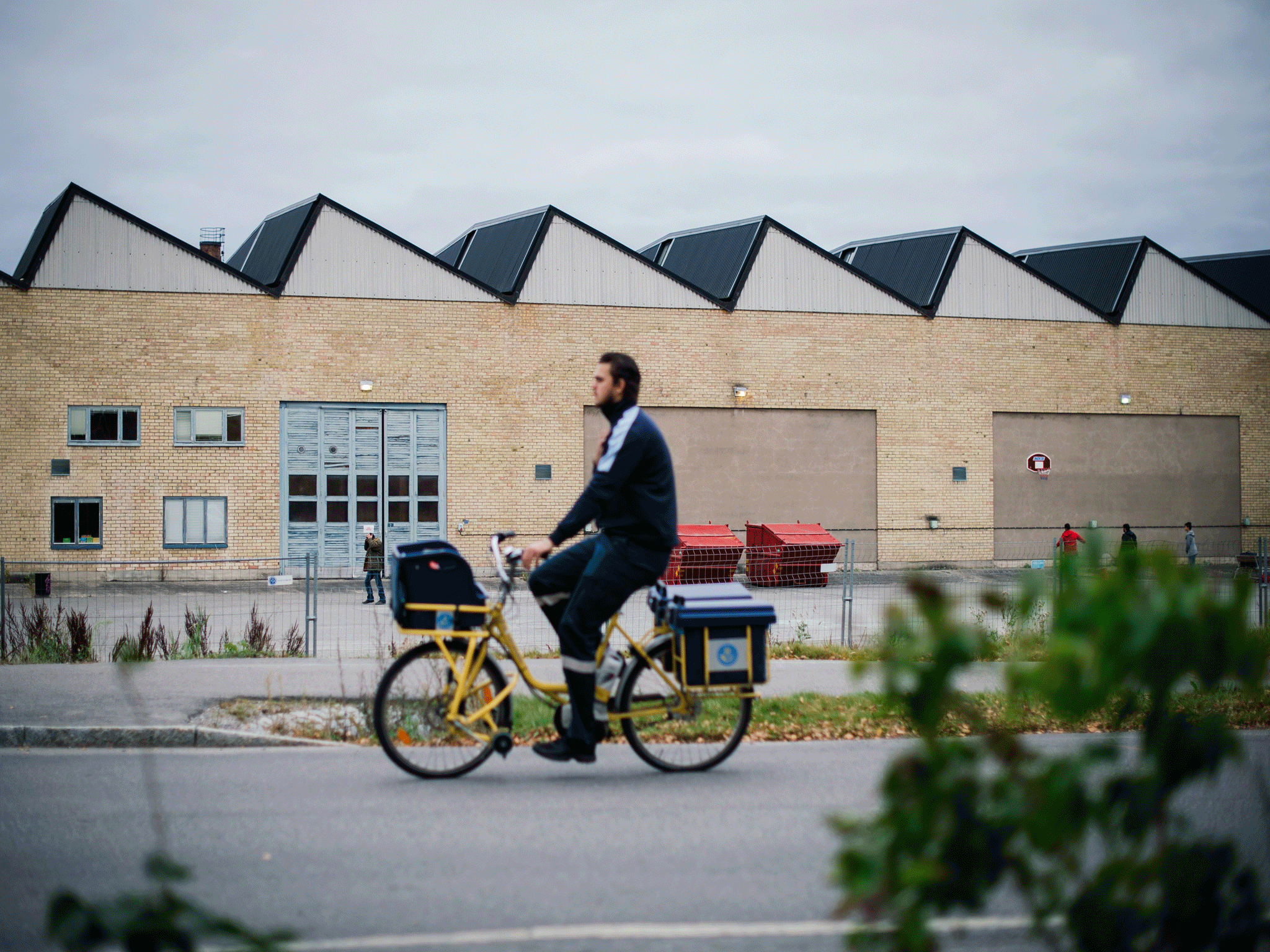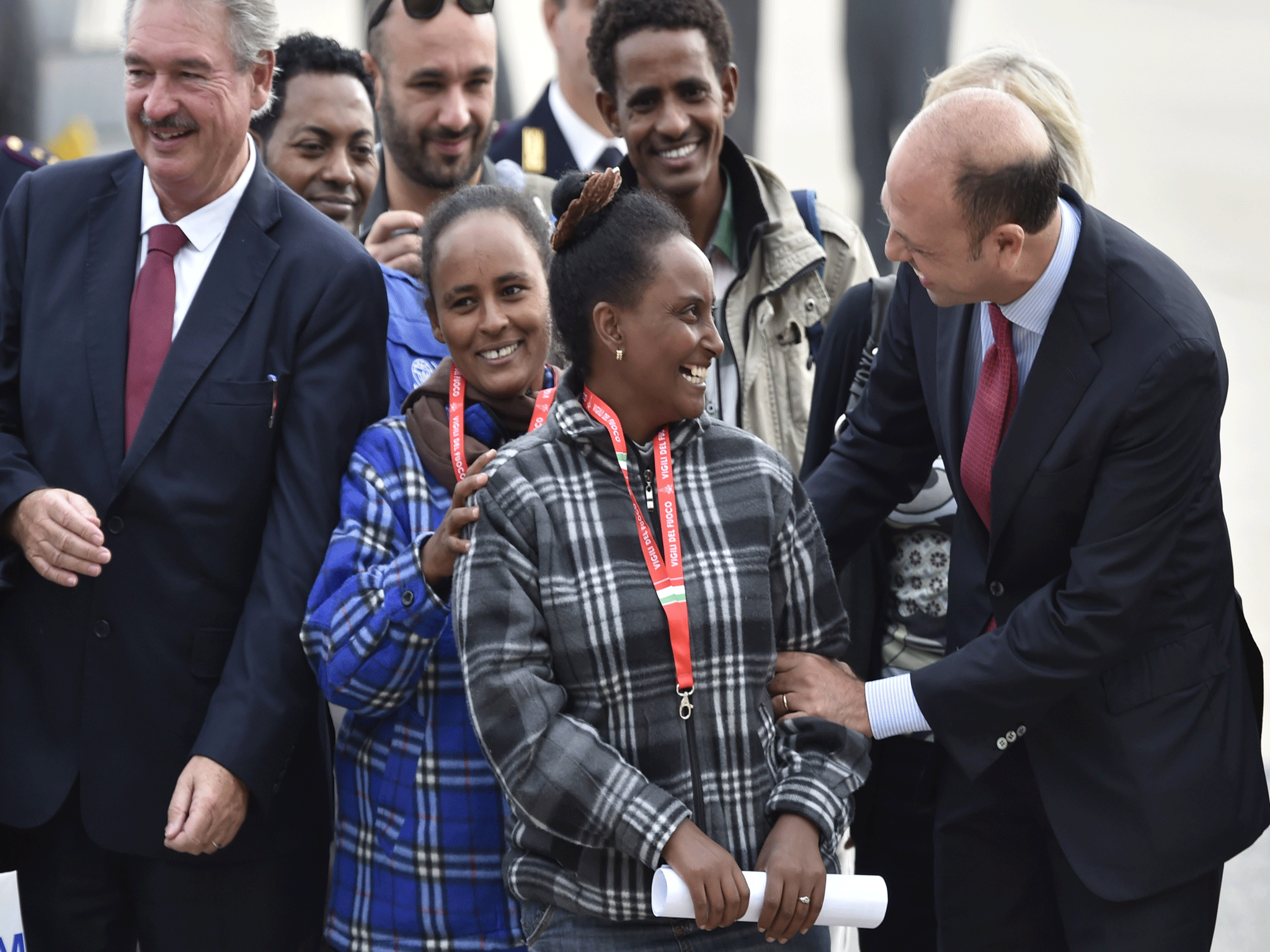Private housing firms in Sweden are profiting from refugee crisis, say critics
The Scandinavian country's government criticises the practice - but says accomodation solutions are currently more of a priority than regulating the private firms

Private companies dealing with the refugee crisis in Sweden are being accused of increasing prices in an effort to profit off a "desperate" situation.
Accomodation providers, who were sold off to private companies under the last conservative-liberal government, are charging more than £6,000 a month to place a refugee child with a foster family according to press reports.
The migration minister, Morgan Johansson, said private housing companies were taking advantage of the situation to "line their own pockets" as demand for beds and homes is hugely outstripping supply, The Guardian has reported.
And the head of refugee accomodation at Sweden's migration board, Tolle Furegard, said the service had to rely heavily on the private sector in this situation.
"They are not doing this to be nice to us," he said
"It is a big sector, a chance to earn a lot of money quickly, and it's safe, because the government pays its bills."
Some of the companies named by The Guardian are Aleris, Vardaga and Jokarjo. Aleris, which is owned by the powerful Wahlenberg family, declined to comment on press reports that it charges as much as £6,600 a month to house a refugee child with a new family.

And when owner of Jokarjo, the largest private provider of accomodation for adults, was asked by reporter Carolina Neurath why he charged the Swedish state 350 krona (£27) a day, he called her "f***ing stupid", The Guardian reported.
Vardaga, meanwhile, said that after three years in the sector it was "still not breaking even." The owner of Vardaga previously tried in 1991 to set up an anti-immigration party.
The migration board, meanwhile, has had to lower its standards for offers of accomodation for refugees to find 30,000 more beds by the end of this year - a "huge number", Mr Furegard told The Guardian.
About 9,000 people are arriving in Sweden every week, with 80,000 having arrived in the country so far. David Cameron has pledged that the UK will take 4,000 refugees a year for the next five years, which has been criticised.
There is evidence of a growing popularity for right-wing, anti-immigration parties in Sweden, as reported by The Independent in August. However, 44% of Swedes said in an Ipsos Mori poll that the country should take more refugees.
At present the authorities are using heated tents to house refugees who arrive, as well as other accomodation, and are not currently seeking to force private companies to stop increasing prices.
A spokesperson for the justice ministry said: "The government is highly critical of some reported prices in the private sector, but deems that the short-term need of finding accomodation must take precedence over regulation looking at prices or profits at the moment."
Join our commenting forum
Join thought-provoking conversations, follow other Independent readers and see their replies
Comments